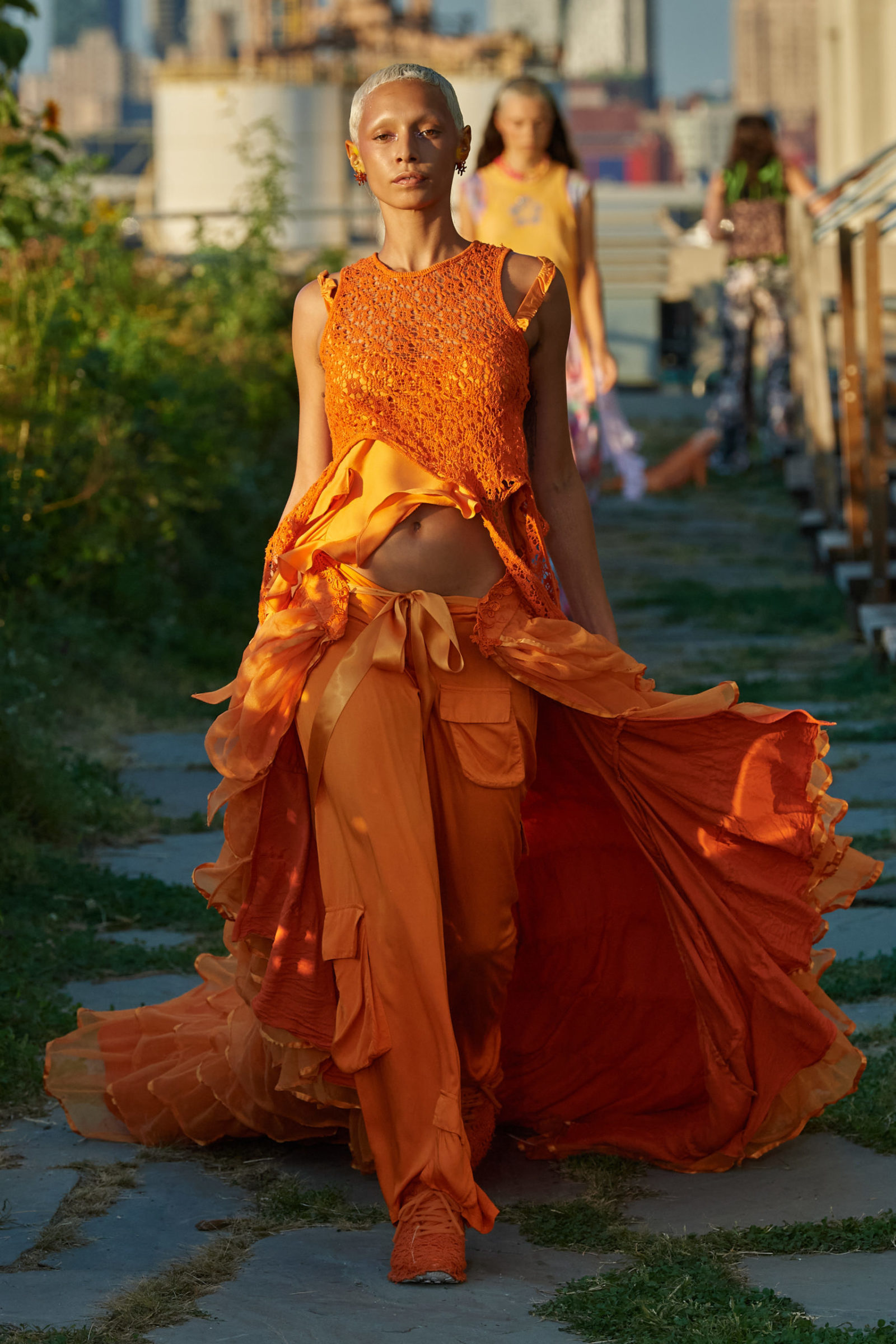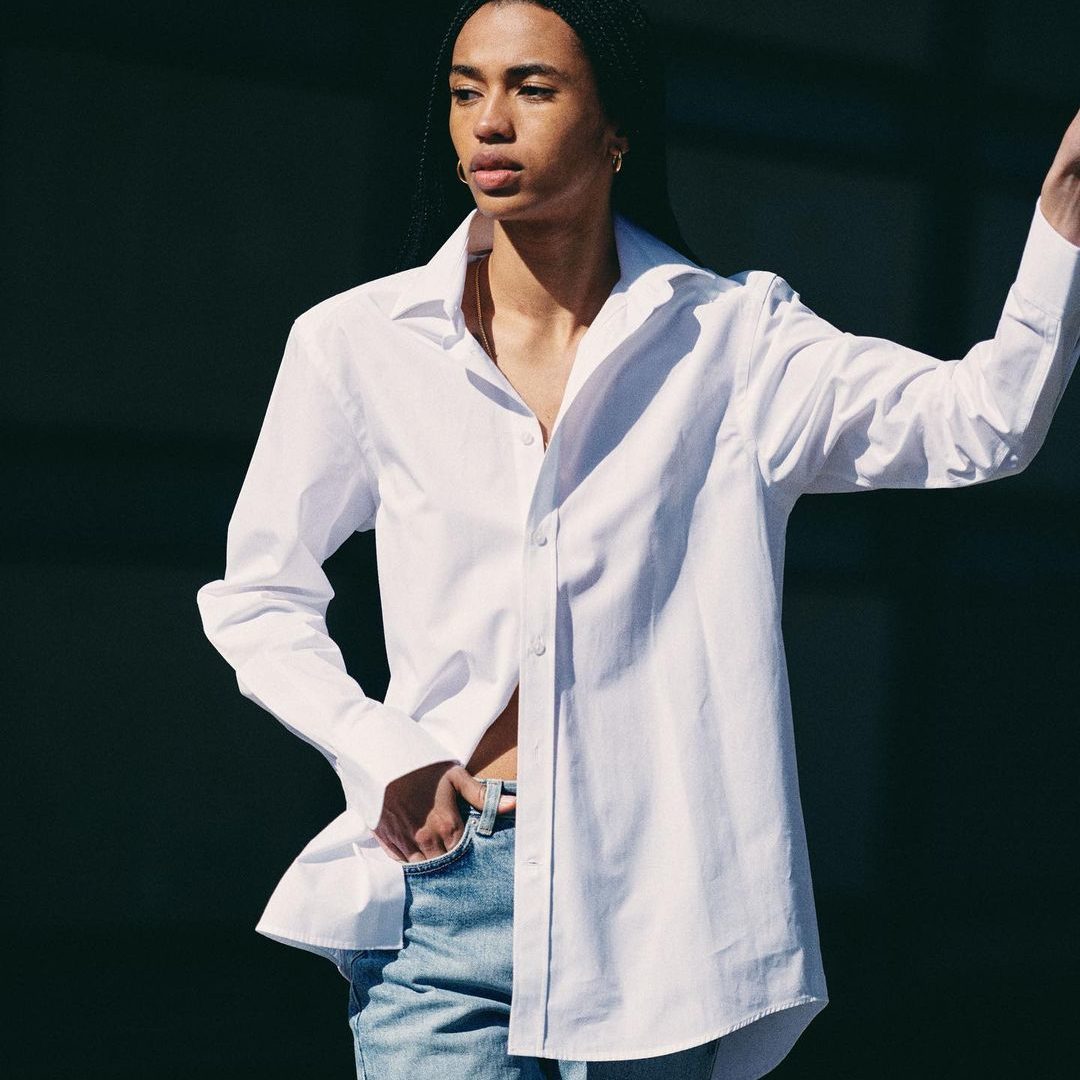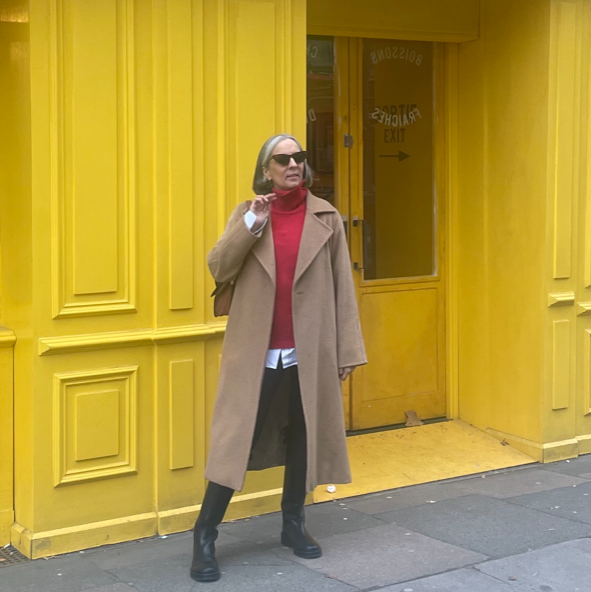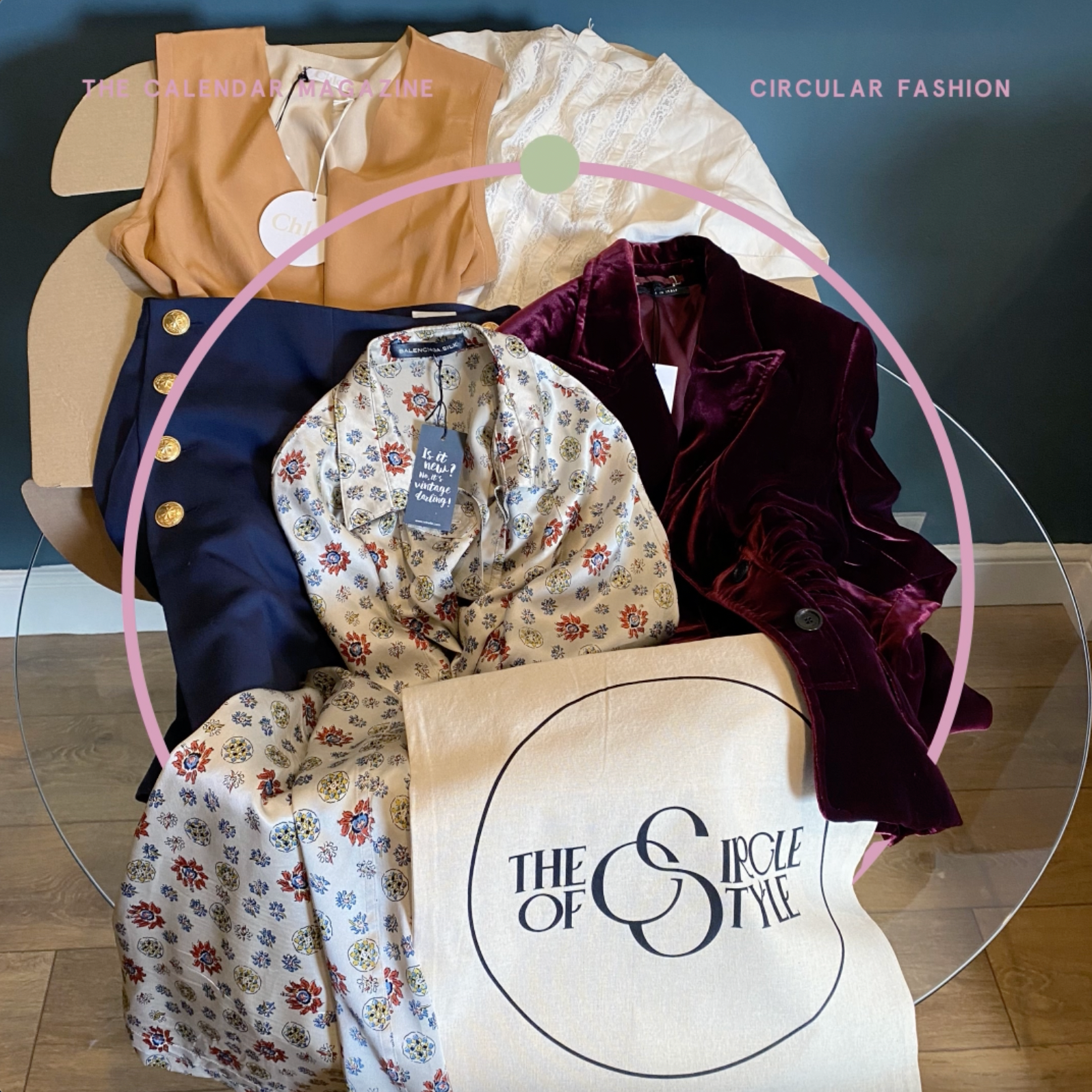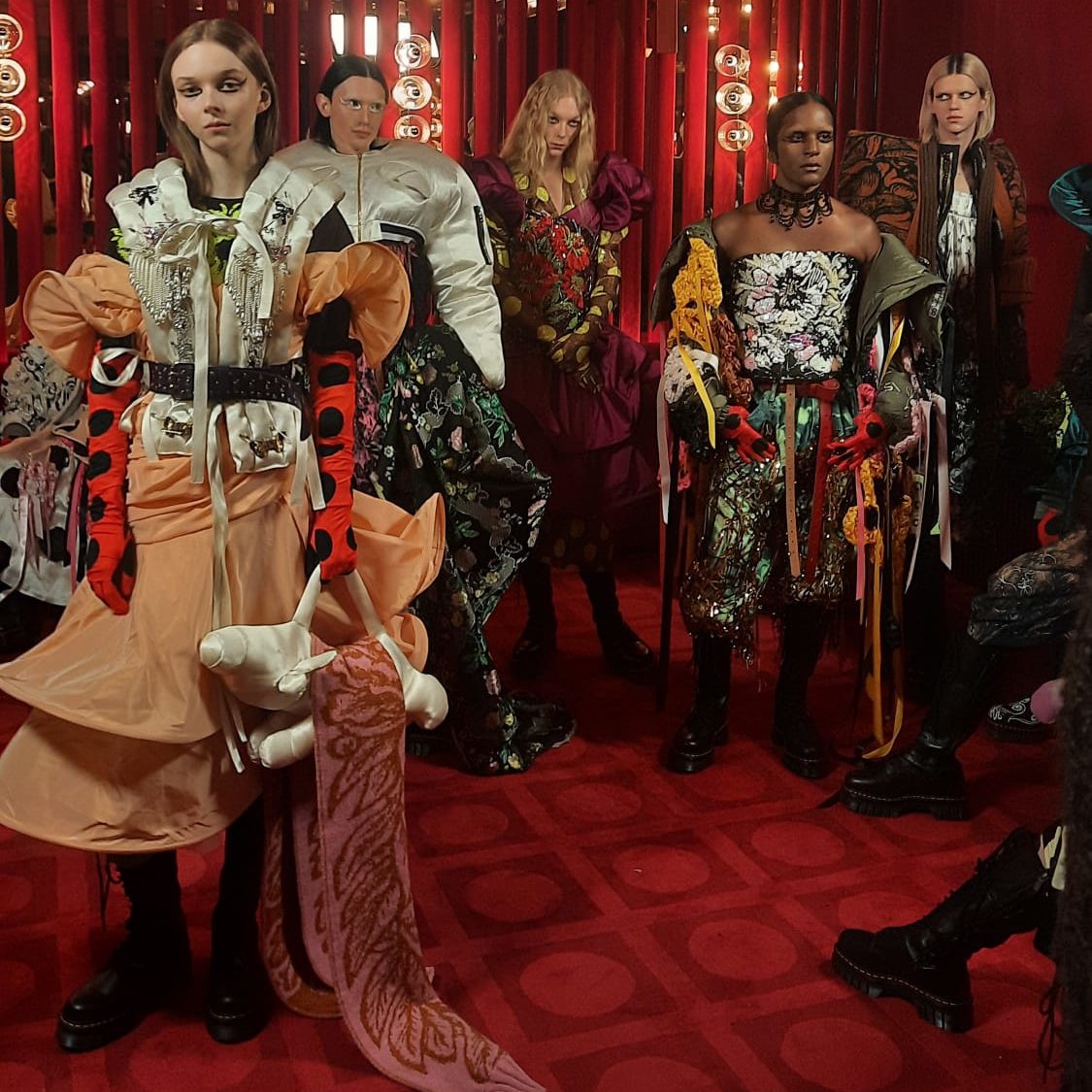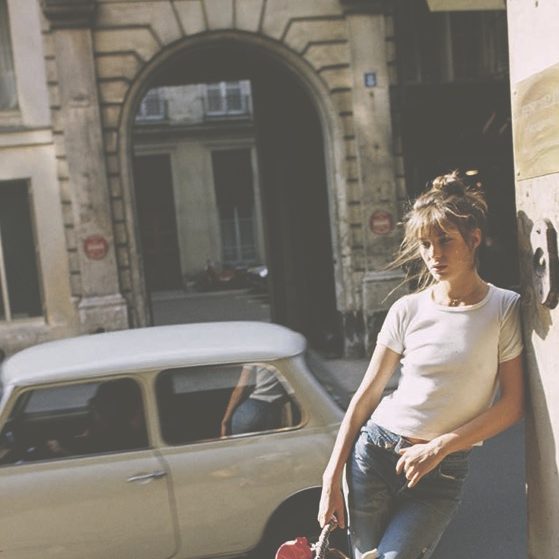February | Designer Focus
Collina Strada
For more than a decade, Collina Strada has been blazing a trail with its joyful, psychedelic clothes and radically responsible ethos. We meet its founder and creative director, Hillary Taymour, to find out why she’s created a label that’s as inspirational as it is aspirational
Emma SellsCollina Strada was the pitch-perfect choice to open New York Fashion Week in September last year. The brand’s kaleidoscopic use of colour, print and craft, magnetically eclectic casting and easy, effortless silhouettes, all unveiled in a sun-soaked roof-top garden, was brilliantly joy-filled and uplifting, setting just the right tone for the city’s first physical show in 18 months. The only question now is, how will the label top it this season? “There’s nothing I love more than to put on our shows,” says Hillary Taymour, founder and creative director of the label, as we speak a fortnight out from the unveiling of her AW22 collection. “But the stress of it; I put the most pressure on myself to do the best show possible. And it’s my own shit, it has nothing to do with industry. It’s just me feeling that I have to do better and better and better. Or else why am I doing this? Which is not sane but also makes for a great show every season.”
Collina Strada (christened after the nickname given to Taymour by a friend at fashion school – collina means ‘little hill’ in Italian) has been injecting its off-kilter sense of fun and playfulness into the New York fashion scene for more than a decade now. What started as a leather bag brand in 2009 has quietly evolved into a global force to be reckoned with that counts Rihanna, Halsey, Lorde and Hari Nef amongst its dedicated followers, and whose success has really kicked up a gear over the past three years thanks to a nomination for the CFDA/Vogue Fashion Fund and a spot in the line-up of Gucci’s first Vault project. The once-radical approach that Taymour has been steadily championing for years – thoughtful decision making, sustainable practises and wide-ranging inclusivity – have finally become the zeitgeist and, as a result, the label is getting the love and attention it deserves.
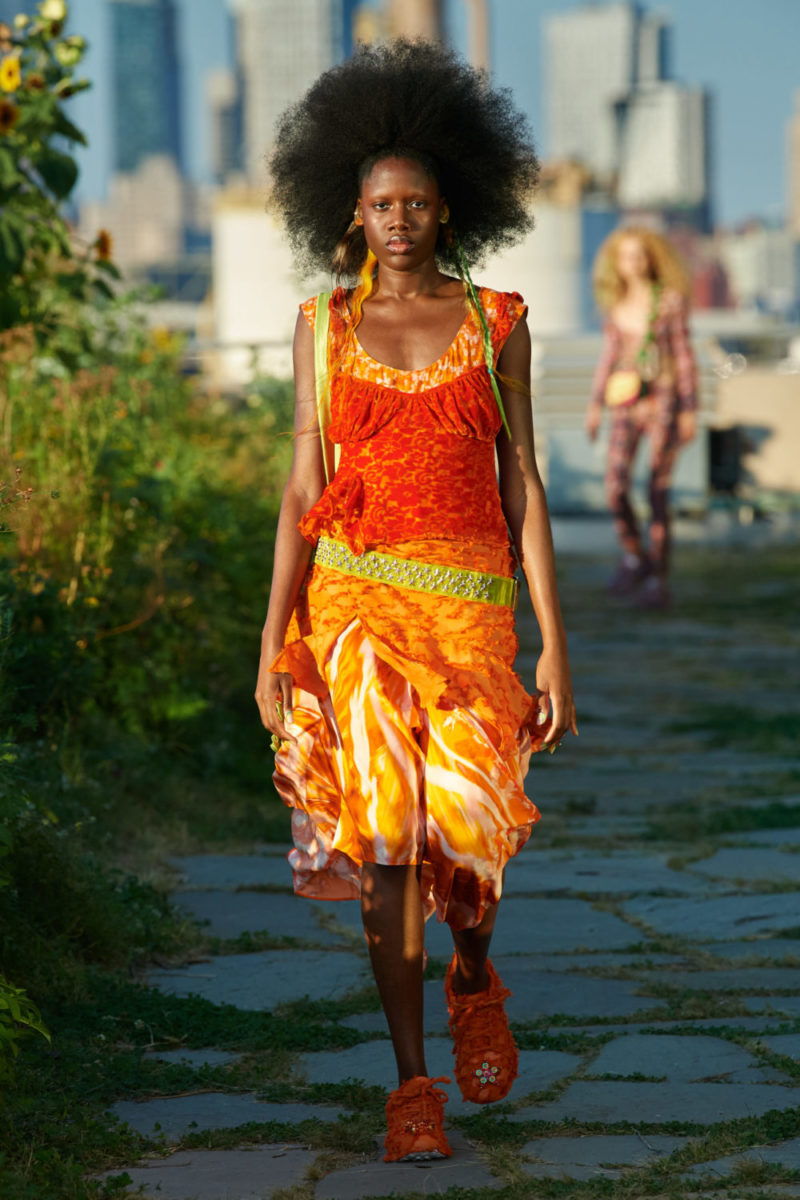
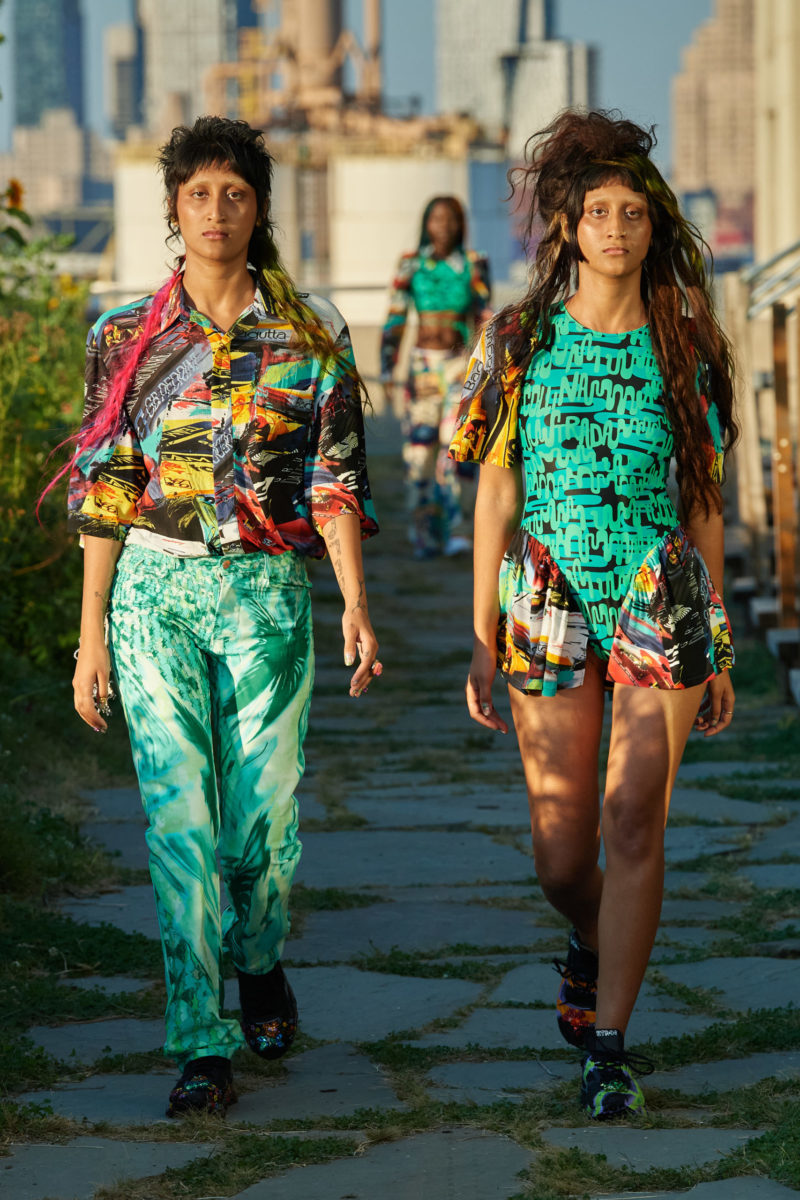
Courtesy of Collina Strada
I want to be an example, like, here’s the way to upcycle what you already have in your closet. You don’t necessarily have to buy my clothes. You can do it yourself if you can’t afford the brand or you like doing things on your own and you have the time. Or you can buy mine if you don’t. But you can steal the look without having to go to fast fashion
Hillary Taymour
When Taymour started the brand in 2009, sustainability didn’t even cross her mind. But, the more time she spent immersed in the industry, faced with the amount of waste it was generating on a daily basis, the more her mindset and priorities changed. “I just grew up and figured things out,” she explains. “I saw things around me that made me want to always evolve and do the right thing, otherwise I don’t think I would be happy with myself. You know, I could have taken the easy way and made stuff on the cheap and turned profits and been rich. But would I feel good about that in my soul? I don’t know.” She doesn’t like to describe Collina Strada as a sustainable brand, though – true, the vast majority of pieces are made locally from recycled or upcycled materials but they’re still being shipped around the world. “We’re just a brand that likes to push the boundaries of expressing ourselves in a positive way,” she says. “We’re trying to be a teacher and set the standard for how we all need to move forward in the fashion industry.”
The psychedelic, Californian vibe of her clothes is infectiously happy, all nineties-inspired oversized T-shirts and hoodies, skinny, cut-away tops, easy-breezy tiered dresses, and slouchy, wide-leg jeans that have been hand-painted and scribbled on, each piece made for mixing, matching and layering. “I think it’s just basically everything I was never allowed to have as a child,” laughs Taymour as she explains her aesthetic. “I mean, it’s always going to evolve; right now, I might be in my teenage years, but I think that it’s more about what I feel is fun. I want to have fun when I get dressed and be comfortable. So, it’s easy to wear but you feel like you’re wearing a look no matter what.” Pay attention and you’ll see that silhouettes reappear season after season, a way of keeping the pace of the label slow and ensuring that you can feel as much a part of the brand whether you bought your favourite piece this week or five summers ago.
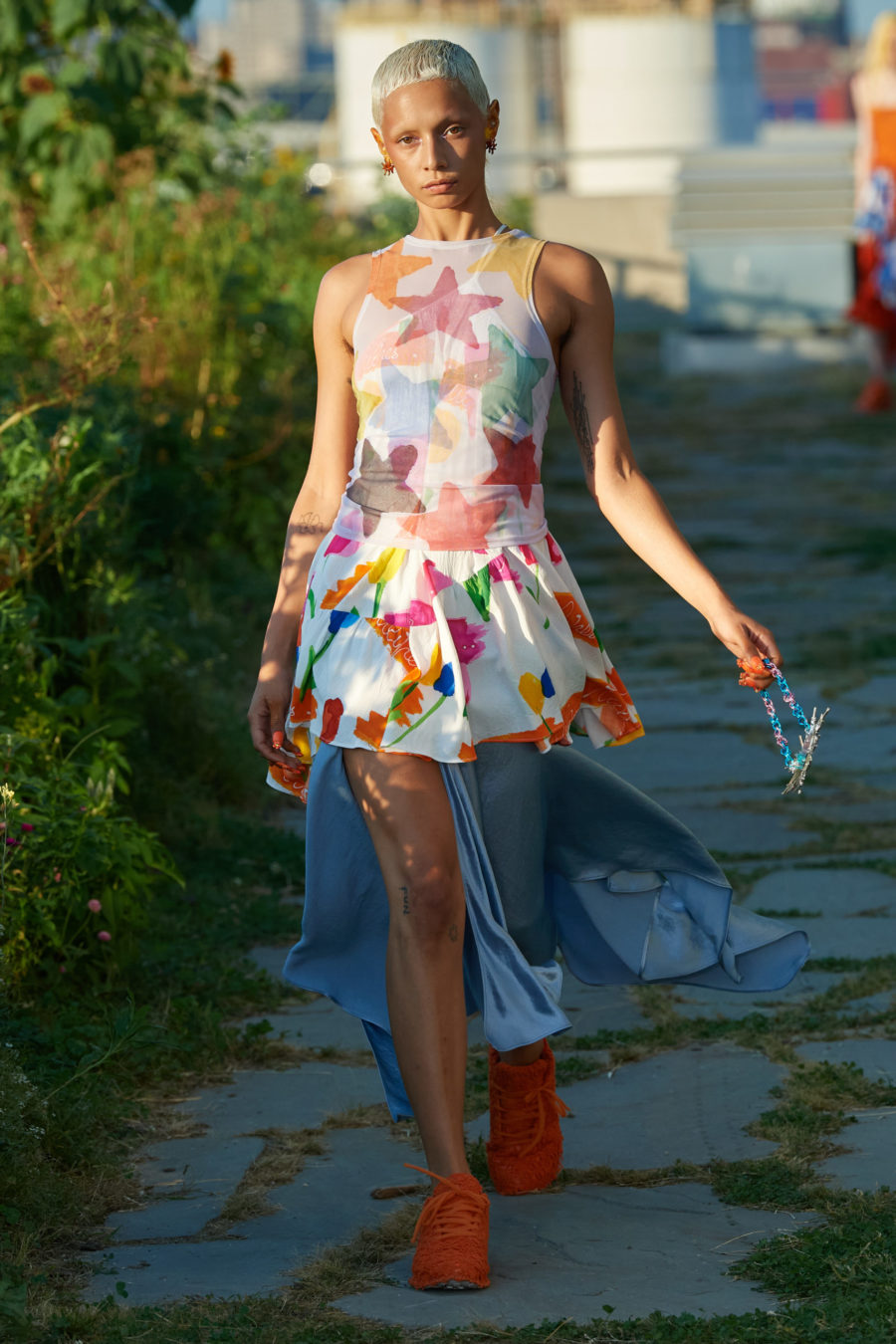
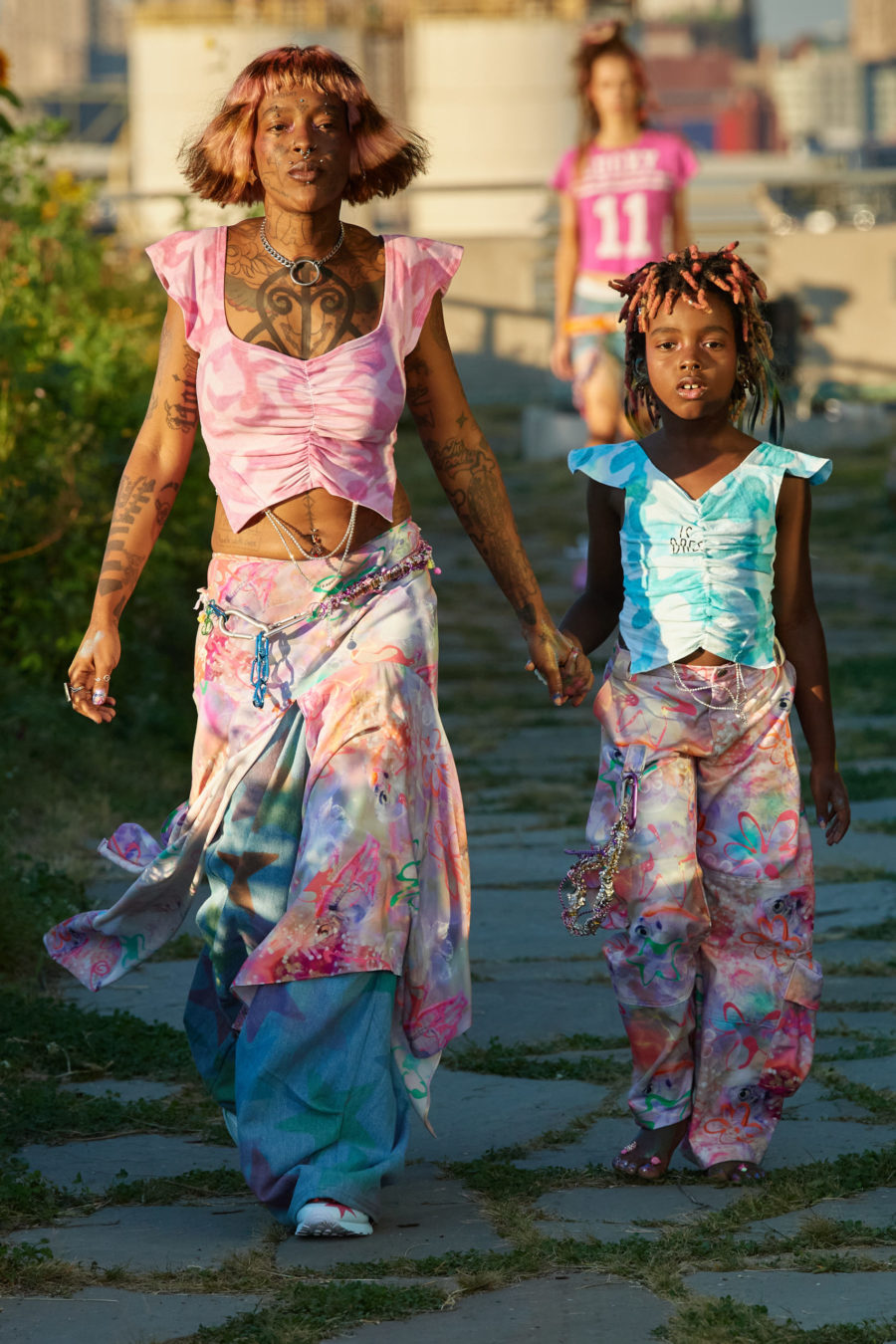
Courtesy of Collina Strada
Arguably the most radical element of Taymour’s ethos, though, is to make the label inspirational rather than purely aspirational; the hope that all her upcycling, tie-dying and hand-painting can be used as a blueprint by anyone who loves what she’s doing. “I want to be an example, like, here’s the way to upcycle what you already have in your closet,” she says. “You don’t necessarily have to buy my clothes. You can do it yourself if you can’t afford the brand or you like doing things on your own and you have the time. Or you can buy mine if you don’t. But you can steal the look without having to go to fast fashion.” It’s that warm and welcoming spirit that really makes Collina Strada tick – the antithesis of luxury fashion’s usual sense of exclusivity. It means that her runways are filled with a diverse mix that spans the spectrum of gender, age, skin colour and disability, made up of family – her four-year-old niece walked the runway last season – the team that work in her studio, celebrity friends and collaborators alongside professional models. It creates a support network, too, that helps balance out the massive challenges of running a label responsibly, the extraordinary amount of extra time, work, expense and fire-fighting that it involves on a day-to-day basis. “It’s kind of psycho how much more work it takes to be conscious, and that’s why people don’t do it,” says Taymour.
Taymour admits to being sceptical about the future of the fashion industry and the amount of genuine desire that most brands and businesses have to do things differently. But she’s committed to doing her part – and she hopes to do even more. “I want to just keep Collina as my baby in the art/fashion realm, keep being the standard of what is good in the industry,” she says. “But I really want to take my talents and use them for a more mass market, for stuff that I don’t think is the right fit for Collina. I’d love to be in charge of a bigger brand and help get it on the right path. I just want to be the person that helps clean up the mess.”
